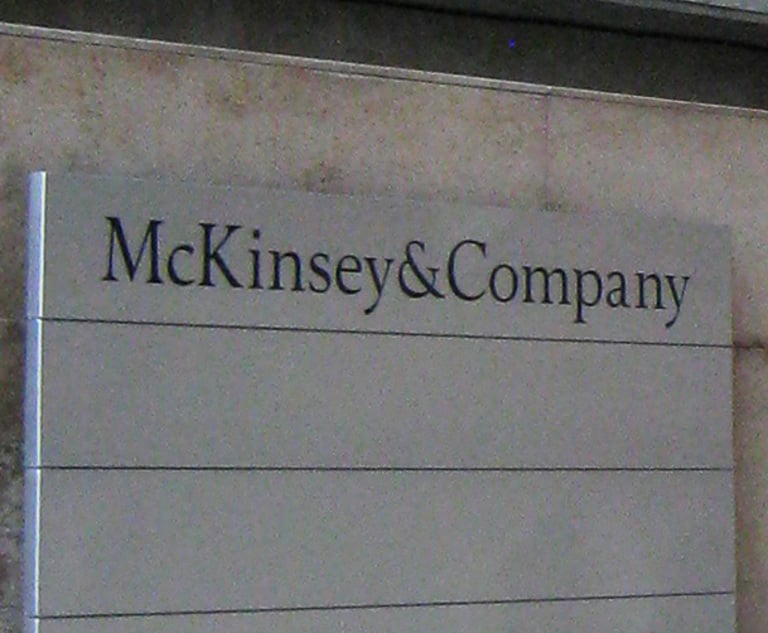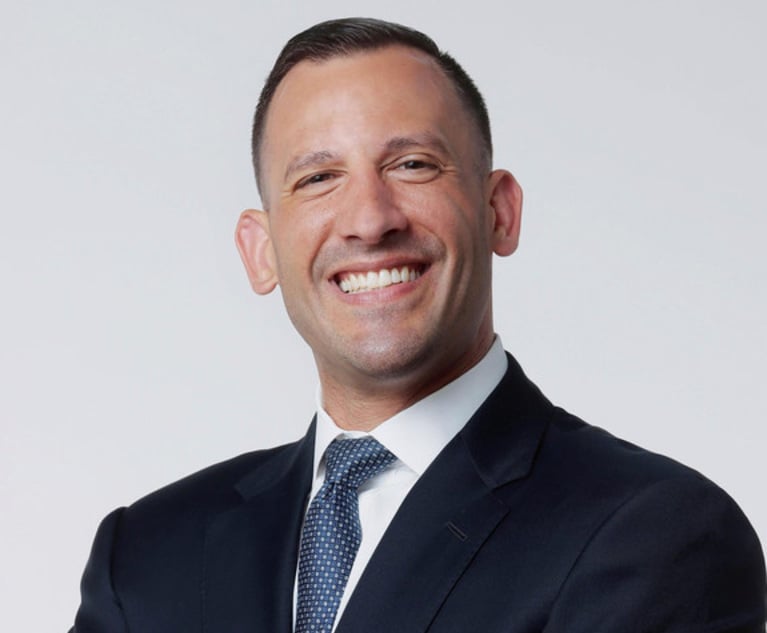In Wake of Successful Prosecution, DOJ May Ramp Up Anti-Corruption Efforts by Pursuing Foreign Executives
Ng's conviction not only reaffirms the broad scope of the DOJ's power under the FCPA but may embolden the DOJ in its quest to hold foreign national executives accountable, amid the U.S. government's ongoing fight against global corruption.
July 06, 2022 at 11:00 AM
8 minute read
 The recent successful prosecution of "Roger" Ng Chong Hwa (Ng) by the U.S. Attorney's Office for the Eastern District of New York (EDNY) sets the stage for the Department of Justice (DOJ) to more aggressively pursue violations of the Foreign Corrupt Practices Act (FCPA). Ng, a Malaysian citizen and a former Goldman Sachs managing director, had never set foot in the EDNY. But this past spring, Ng was convicted after a jury trial for paying bribes to foreign government officials, among other crimes, in violation of the FCPA. Ng's conviction not only reaffirms the broad scope of the DOJ's power under the FCPA but may embolden the DOJ in its quest to hold foreign national executives accountable, amid the U.S. government's ongoing fight against global corruption.
The recent successful prosecution of "Roger" Ng Chong Hwa (Ng) by the U.S. Attorney's Office for the Eastern District of New York (EDNY) sets the stage for the Department of Justice (DOJ) to more aggressively pursue violations of the Foreign Corrupt Practices Act (FCPA). Ng, a Malaysian citizen and a former Goldman Sachs managing director, had never set foot in the EDNY. But this past spring, Ng was convicted after a jury trial for paying bribes to foreign government officials, among other crimes, in violation of the FCPA. Ng's conviction not only reaffirms the broad scope of the DOJ's power under the FCPA but may embolden the DOJ in its quest to hold foreign national executives accountable, amid the U.S. government's ongoing fight against global corruption.
Jurisdiction and Venue Under the FCPA
The FCPA, which prohibits corrupt payments to foreign government officials for the purpose of obtaining or retaining business, has been the primary tool of the United States to combat foreign bribery since the Watergate scandal, when it was discovered that several U.S. companies and executives used overseas slush funds for corrupt foreign payments.
The FCPA's anti-bribery provisions specifically set forth categories of persons over whom the United States can assert jurisdiction for violations of the FCPA. 15 U.S.C. §78dd-1-dd-3. Specifically, the FCPA prohibits (1) "issuers" of U.S.-regulated securities, and their officers, directors, employees, agents, or stockholders acting on their behalf, from using means of interstate commerce or taking any act outside the United States in order to bribe foreign officials; (2) "domestic concerns," meaning U.S. persons and U.S. companies, and their officers, directors, employees, agents, or stockholders acting on their behalf, from using means of interstate commerce or taking any act outside the United States in order to bribe foreign officials; and (3) foreign persons or companies from taking acts in furtherance of a corrupt scheme, such as paying bribes, while in the United States. Id. In recent years, the Second Circuit has reviewed a handful of cases that tested the FCPA's jurisdictional reach. Notably, in United States v. Hoskins, 902 F.3d 69 (2d Cir. 2018), the Second Circuit rejected the DOJ's attempt to use co-conspirator liability to expand the FCPA beyond the statute's delineated categories of jurisdiction.
This content has been archived. It is available through our partners, LexisNexis® and Bloomberg Law.
To view this content, please continue to their sites.
Not a Lexis Subscriber?
Subscribe Now
Not a Bloomberg Law Subscriber?
Subscribe Now
NOT FOR REPRINT
© 2025 ALM Global, LLC, All Rights Reserved. Request academic re-use from www.copyright.com. All other uses, submit a request to [email protected]. For more information visit Asset & Logo Licensing.
You Might Like
View All
Enemy of the State: Foreign Sovereign Immunity and Criminal Prosecutions after ‘Halkbank’
10 minute read
McKinsey Subsidiary to Pay Nearly $123 Million to Settle US Investigation Into South Africa Bribery Case


FEPA: The Most Influential Anti-Bribery Legislation Since FCPA or a Paper Tiger?
8 minute readLaw Firms Mentioned
Trending Stories
- 1Bar Groups Say IOLA Settlement Protects Civil Litigants' Fund From Future 'Raids'
- 2'Every MAGA Will Buy It:' Elon Musk Featured in Miami Crypto Lawsuit
- 3Pennsylvania Law Schools Are Seeing Double-Digit Boosts in 2025 Applications
- 4Meta’s New Content Guidelines May Result in Increased Defamation Lawsuits Among Users
- 5State Court Rejects Uber's Attempt to Move IP Suit to Latin America
Who Got The Work
J. Brugh Lower of Gibbons has entered an appearance for industrial equipment supplier Devco Corporation in a pending trademark infringement lawsuit. The suit, accusing the defendant of selling knock-off Graco products, was filed Dec. 18 in New Jersey District Court by Rivkin Radler on behalf of Graco Inc. and Graco Minnesota. The case, assigned to U.S. District Judge Zahid N. Quraishi, is 3:24-cv-11294, Graco Inc. et al v. Devco Corporation.
Who Got The Work
Rebecca Maller-Stein and Kent A. Yalowitz of Arnold & Porter Kaye Scholer have entered their appearances for Hanaco Venture Capital and its executives, Lior Prosor and David Frankel, in a pending securities lawsuit. The action, filed on Dec. 24 in New York Southern District Court by Zell, Aron & Co. on behalf of Goldeneye Advisors, accuses the defendants of negligently and fraudulently managing the plaintiff's $1 million investment. The case, assigned to U.S. District Judge Vernon S. Broderick, is 1:24-cv-09918, Goldeneye Advisors, LLC v. Hanaco Venture Capital, Ltd. et al.
Who Got The Work
Attorneys from A&O Shearman has stepped in as defense counsel for Toronto-Dominion Bank and other defendants in a pending securities class action. The suit, filed Dec. 11 in New York Southern District Court by Bleichmar Fonti & Auld, accuses the defendants of concealing the bank's 'pervasive' deficiencies in regards to its compliance with the Bank Secrecy Act and the quality of its anti-money laundering controls. The case, assigned to U.S. District Judge Arun Subramanian, is 1:24-cv-09445, Gonzalez v. The Toronto-Dominion Bank et al.
Who Got The Work
Crown Castle International, a Pennsylvania company providing shared communications infrastructure, has turned to Luke D. Wolf of Gordon Rees Scully Mansukhani to fend off a pending breach-of-contract lawsuit. The court action, filed Nov. 25 in Michigan Eastern District Court by Hooper Hathaway PC on behalf of The Town Residences LLC, accuses Crown Castle of failing to transfer approximately $30,000 in utility payments from T-Mobile in breach of a roof-top lease and assignment agreement. The case, assigned to U.S. District Judge Susan K. Declercq, is 2:24-cv-13131, The Town Residences LLC v. T-Mobile US, Inc. et al.
Who Got The Work
Wilfred P. Coronato and Daniel M. Schwartz of McCarter & English have stepped in as defense counsel to Electrolux Home Products Inc. in a pending product liability lawsuit. The court action, filed Nov. 26 in New York Eastern District Court by Poulos Lopiccolo PC and Nagel Rice LLP on behalf of David Stern, alleges that the defendant's refrigerators’ drawers and shelving repeatedly break and fall apart within months after purchase. The case, assigned to U.S. District Judge Joan M. Azrack, is 2:24-cv-08204, Stern v. Electrolux Home Products, Inc.
Featured Firms
Law Offices of Gary Martin Hays & Associates, P.C.
(470) 294-1674
Law Offices of Mark E. Salomone
(857) 444-6468
Smith & Hassler
(713) 739-1250






